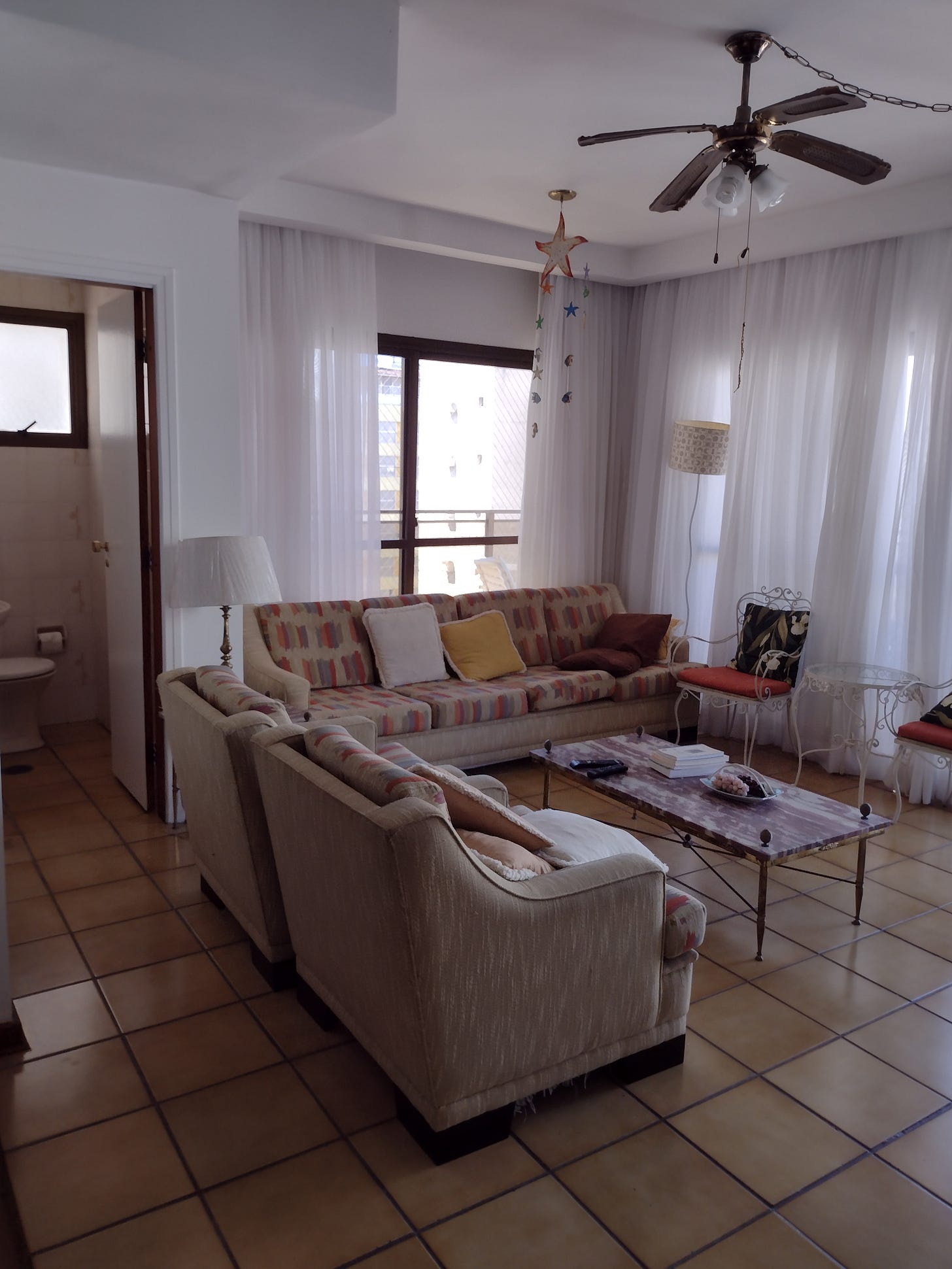'And what do you do with your things?' is the question I hear the most as a digital nomad
I don't miss my couch. There are incredible couches anywhere
I am a digital nomad still in formation. Six months on the road is short, but enough to start creating patterns and recognizing what works or not in my lifestyle.
It's also been long enough to elect the question I've heard the most during this period.
And what do you do with your things?
As I mentioned in one of the first editions of this newsletter, my life now fits into two suitcases. I sold my things to my ex-girlfriend (actually, they weren't "my things", but "our things”). I took my books to my parents' house. And that's all. Now I live with my clothes, shoes, documents, and personal items like headphones, sunglasses, Kindle, etc.
Read more: 17 items a digital nomad needs to carry
While I find it natural for this question to be the big winner, it also reveals a lot about our upbringing as human beings. We are trained to have "our things," as if inanimate objects know that "they are ours."
My answer doesn't satisfy some interlocutors.
But don't you miss having, I don't know, your couch?
Yes, I really liked my couch. But I also liked two other couches in my life, the one from my adolescence and the one from college years. Couches, like loves, come and go.
So I give more arguments about why I don't miss my couch.
If you have enough money to rent a reasonably good Airbnb, which has been my case, the Airbnbs will come with great couches. I miss my couches in Budapest and Avenida Paulista in São Paulo, which were quite comfortable. I'm currently in Rio de Janeiro at a friend's house who's in France, and her couch is also excellent. There are incredible couches around the world. Why do I need to depend on just one couch?
I worked from this comfortable couch for three days in Guarujá and it was amazing
Refrigerator, microwave, washing machine, stove, table, bed, television, shower. All Airbnbs also have these items. I don't miss having mine. What matters is having one that works. And in some cases, they are even better than the ones I had (my washing machine was a bit small, and my microwave didn't heat up properly).
If I feel good and at home where I am, I become bound to the furniture. The same affection we create in our fixed home. The difference is that I have several homes. If I'm always saying goodbye to a comfortable couch, I eagerly await the next couch.
If I stop being a nomad one day, I will obviously buy most of these items (I still refuse to have an AirFryer). The great lesson is to learn to deal with detachment. The less you need to live, the easier it will be to live like a nomad.
Regarding the article "Remote workers and cafe owners should be allies, not enemies", reader Ana Medina, from Rio de Janeiro, sent a photo of a cafe she frequented in Mexico City, where she lived as a digital nomad.
"A space to share and feel at home. Drink, eat, surf the internet, work, study, play", the poster says.
"In the photo, according to the package, there are different prices for each period at the café. The cheapest had water and coffee. The most expensive had water, coffee, and snacks. There was also a separate menu for those who just wanted to have a coffee and eat something. It was the best strategy I found", says Ana.
I really liked it, and when I go to Mexico City I will definitely visit this cafe. As I said, it is more advantageous to create solutions to attract all types of customers than to repulse an increasingly larger group of digital nomads and remote workers.





Também me recuso a ter uma AirFryer quando voltar pra um casa fixa hahaha :) Desapegar de “coisas” tem sido, pra mim, a melhor forma de entender o que importa. Adorei o texto!
Yeah, it's difficult for people to detach from things and relationships. I know that this way of life isn't for everyone, mainly because we are taught/created to have everything: properties, family, ambitions...